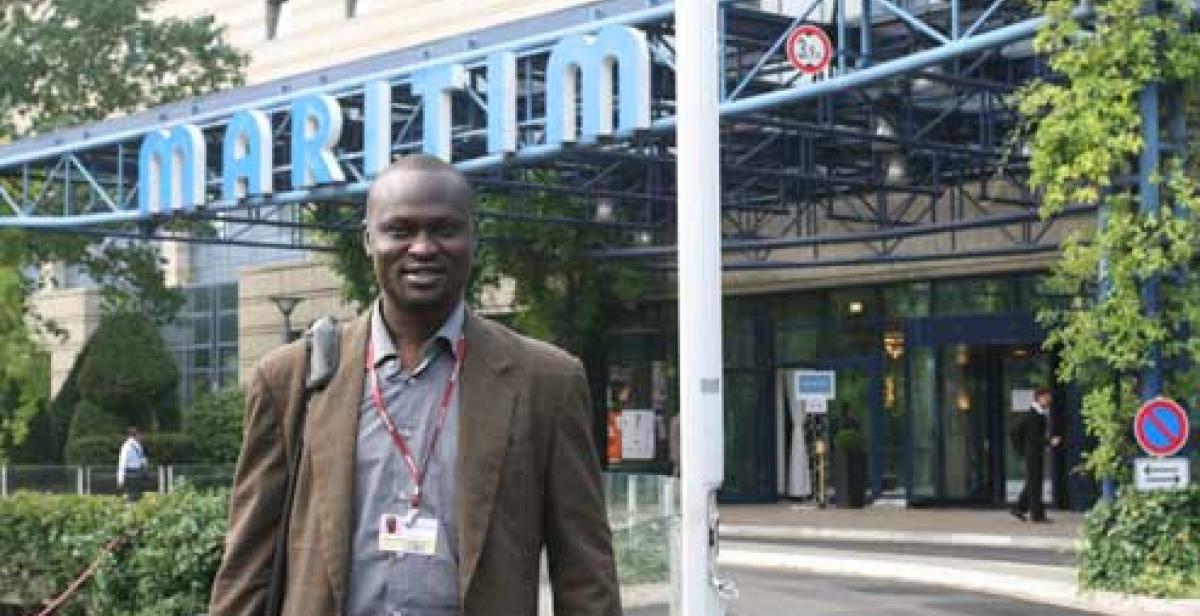Progressio's Innocent Ogaba, a development worker with Environment Africa in Malawi, says things are looking up at the latest round of international climate change negotiations in Bonn.
Before I set off to take part in the latest round of climate talks in Bonn, lots of people asked me if I had any hope. Copenhagen had admittedly been something of a disaster and people seemed wary of the UN led climate process altogether.
So it’s probably not surprising that, on the first day, there was a lot of scepticism. Many here at the talks saw this as more of the same, they said the process was dragging on and nothing was changing.
But now, a few days later, the tone has shifted. People really are saying they have to make some decisions. Even the US and EU delegations have started to change their positions a bit and they want to see some progress.
The whispers we are hearing around the corridors of the conference centre and hotels in Bonn suggest some of the key challenges might be overcome at the next major climate change summit to be held in Mexico at the end of the year. It seems people are no longer waiting for everything to be agreed before they make decisions.
Delegates from many nations are starting to say that the commitments they have made so far, judging from the scientific evidence that climate change is happening, are now below par.
Of course, not every issue will be tackled in Mexico. Mitigation (or setting targets to curb the emission of greenhouse gases) might not be resolved, for example. Personally, I don’t understand why the big countries are so reluctant to move things forward.
On other key issues though, I think there will be progress. On adaptation – supporting communities, particularly those in less developed countries, to adapt to the effects of climate change – and on technology transfer – helping to equip vulnerable communities with the technological means to they will need to cope with climate change – I do think we will see progress.
Also, on climate finance. How are we going to help poor and vulnerable communities and less developed countries pay for all of these extra protective and preventative measures they will have to take to combat climate change? That’s a big question, and one which I think we are making progress on.
If all of these things happen – and if key decisions are made on adaptation, technology and finance, either here or in Cancun, that would be very good for Africa.
But whatever is actually achieved through this process, the fact remains that there is a big communication gap with the communities I work with back in Malawi. Not many of them know about these climate change talks. Of course, farmers know about climate change itself, they see its effects every day, but they are not so in touch with what is going on at an international level. The information simply doesn’t trickle down.
When I get back to Malawi, I will make sure what I have learnt here is part of the agricultural programmes I run with Environment Africa, helping local communities change and adapt their farming methods to ensure they are better able to cope with climate change.
I will also tell the communities I work with about the bigger picture. I think they will be interested to know that many others around the world are being hit by climate change – and they will also be interested to know that the world is thinking about ways to tackle it. It will give them a boost.
They often think people in the US and the developed world are just driving around in their BMWs with little regard for the rest of us.
The best idea though is to share solutions with farming communities as well as the ‘problem’. And that’s what I will be telling them: that there are some solutions on the table – we just don’t know exactly when we will see the results.
Photo: Innocent Ogaba outside the Maritim hotel which is hosting the latest round of climate talks in Bonn, Germany (Photo © Petra Kjell/Progressio).



